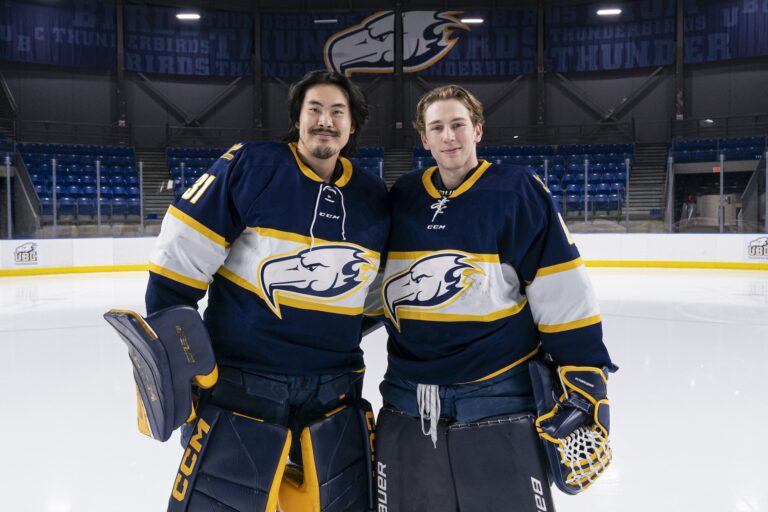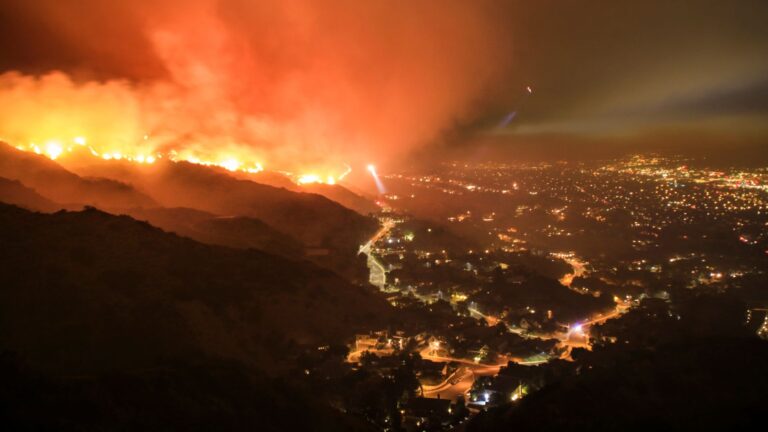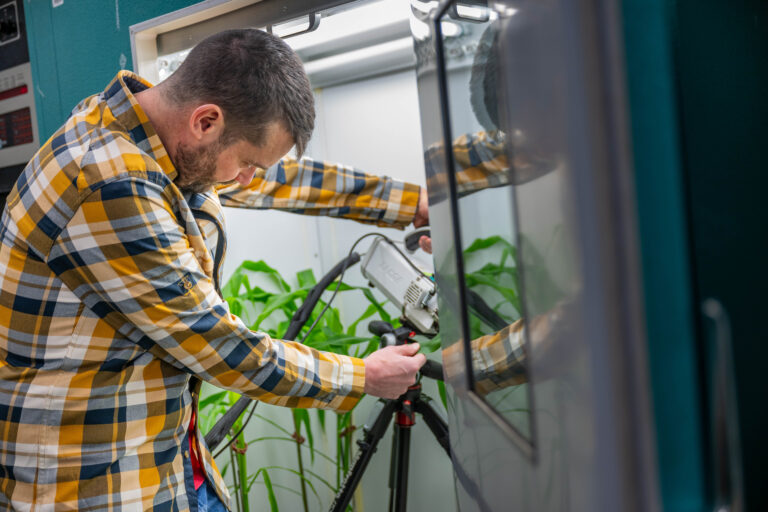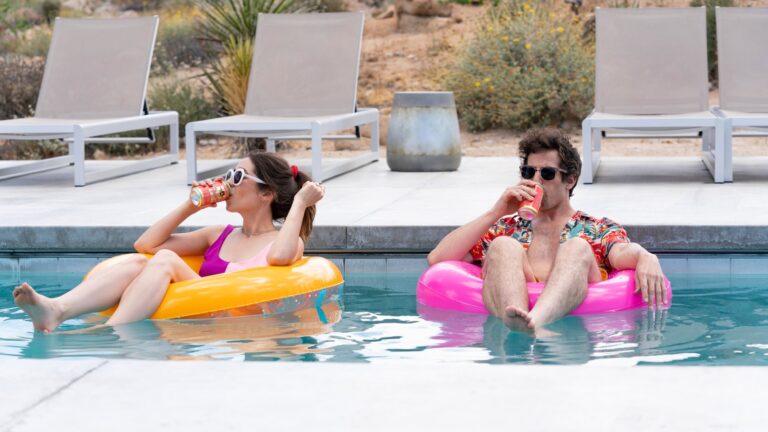UBC climate and energy experts and COP27 delegates
The 27th Conference of the Parties (COP27) United Nations climate change conference will take place from Nov. 6-18 in Sharm el-Sheikh, Egypt.
The International Energy Agency (IEA) also released its annual world energy outlook report today.
UBC experts are available to comment.
UBC COP27 delegation
Dr. Vanessa Andreotti
Professor, Department of Educational Studies
Interim Director, Peter Wall Institute for Advanced Studies
Canada Research Chair in Race, Inequalities and Global Change
Email: vanessa.andreotti@ubc.ca
Interview language(s): English
- Neocolonialism in climate change mitigation strategies
- The importance of Indigenous rights and voices in the climate agenda
Gideon Berry (they/them)
Master’s student, Department of Electrical and Computer Engineering
Email: gberry01@student.ubc.ca
Interview language(s): English
- Youth empowerment, sustainability, COP27, energy, energy policy, energy transition, climate justice, climate education
Rudri Bhatt (she/her)
PhD student, Institute for Resources, Environment and Sustainability
Email: rudribhatt@gmail.com
Interview language(s): English and Hindi
- decarbonization, electrification of vehicles, emissions and air pollution, climate justice
*Unavailable Oct. 31 – Nov.1 and Nov. 14.
Dr. Simon Donner
Professor, Department of Geography
Email: simon.donner@ubc.ca
Interview language(s): English
- Climate change science, climate change policy including targets, finance and adaptation
Abul Bashar Rahman (he/him)
Undergraduate student, Vancouver School of Economics
Tel: 778-723-9609
Email: abulbasharrahman@gmail.com
Interview language(s): English, Bangla
- Lived and learned experiences as a first-generation Bangladeshi (one of the most affected regions of the world by climate change)
- Climate change in South Asia, impact investments, globalization and climate refugee crisis
*Available evenings Mondays, Wednesdays, Fridays, and during the day Tuesdays, Thursdays
Dr. Verónica Relaño
UBC recent alumna, Institute for the Oceans and Fisheries
Email: veronica@watersciencepolicy.com
Interview language(s): English, Spanish
- Marine conservation, ocean health and protected areas
Dr. Pasang Yangjee Sherpa
Assistant Professor, Institute for Critical Indigenous Studies and Department of Asian Studies
Email: pasang.sherpa@ubc.ca
Interview language(s): English
- The importance of including Indigenous knowledge in climate change assessment reports including the IPCC ARs
Dr. Shannon Waters (she/her)
Clinical Assistant Professor, School of Population and Public Health
Email: Shannon.Waters@islandhealth.ca
- Colonialism and climate change
- Public health action on climate change
Rynn Zhang (张雨晴) (she/her)
Undergraduate student, Department of Materials Engineering
Email: rynn2018@student.ubc.ca
Interview language(s): English, Mandarin
- Circular economy, zero waste, sustainable fashion, youth empowerment, integrating faith and spirituality
* Unavailable Nov. 4-6 and Nov. 13-14
Climate/Environment Experts
Dr. Juan José Alava (he/him)
Research Associate, Institute for the Oceans and Fisheries
Principal Investigator, Ocean Pollution Research Unit
Email: j.alava@oceans.ubc.ca
Interview language(s): English, Spanish
- Microplastic and plastic marine pollution, ocean pollution, pollutants in the marine food web
Prof. Werner Antweiler
Associate Professor, Sauder School of Business
Tel: 604-822-8484
Interview language(s): English
- Energy and electricity sector
- IEA energy outlook report
*Available at 12:00 p.m. Mondays, Wednesdays, and morning Tuesday, Thursdays
Dr. Peter Arcese
Professor, Department of Forest and Conservation Sciences
Tel: 778-350-9295 (text before calling)
Interview language(s): English
- Carbon credits, ecosystem services and conservation
- Pace of adaptation in organisms to climate change
*Unavailable after 4:00 p.m.
Dr. Kai Chan (he/him)
Professor, Institute for Resources, Environment and Sustainability
Email: kaichan@ires.ubc.ca
Interview language(s): English
- Social or ecological side of climate change, social change, ecological impacts
Dr. William Cheung
Professor and Director, Institute for the Oceans and Fisheries
Email: w.cheung@oceans.ubc.ca
Interview language(s): English, Cantonese
- Climate change and the ocean, warming seas, climate change effects on fish
*Unavailable Fridays
Max Cohen (he/him)
PhD candidate, Department of Geography
Tel (WhatsApp only): 236-993-9065
Email: max.cohen.ubc@gmail.com
Interview language(s): English
- Just transitions, oil and gas transitions, wind energy
- UK climate politics, climate policy/politics
Prof. Robert Godin
Assistant Professor, Department of Chemistry
Tel: 250-807-8438
Email: robert.godin@ubc.ca
Interview language(s): English, French
- Solar energy, photocatalysis, solar fuels, hydrogen
- IEA energy outlook report
Prof. Kathryn Harrison (she/her)
Professor, Department of Political Science
Email: kathryn.harrison@ubc.ca
Interview language(s): English
- Climate and energy, climate change
- Environmental politics, environmental policy
- Climate politics and policy in Canada
- COP negotiations
- IEA energy outlook report
*Unavailable on Oct. 27 morning
Dr. Milind Kandlikar
Professor, Institute for Resources, Environment and Sustainability and School of Public Policy and Global Affairs
Tel: 604-822-6722
Email: mkandlikar@ires.ubc.ca
Interview language(s): English, Hindi, Telugu, Marathi
- Climate change, air pollution, sustainable development, global warming, greenhouse gases, electric vehicles
Temitope Onifade (he/him)
PhD candidate, Peter A. Allard School of Law
Email: temitope@onifade.org
Interview language(s): English, Yoruba, English-based pidgin
- Climate policy and justice under the Paris Agreement, Canada’s climate governance framework, being a COP26 delegate
*Limited availability from Oct. 27-30
Dr. Navin Ramankutty
Professor and Director, Institute for Resources, Environment and Sustainability
Professor, School of Public Policy and Global Affairs
Tel: 604-827-1745
Email: navin.ramankutty@ubc.ca
Interview language(s): English, Malayalam, Tamil
- Sustainable agriculture, food systems, climate change, global environmental change
Dr. John Richardson
Professor, Department of Forest and Conservation Sciences
Email: john.richardson@ubc.ca
Interview language(s): English
- Water and biodiversity
- Effects of flooding and water supplies on streams and lakes, water quality and debris torrents
- Effects of droughts on natural ecosystems
- Impacts of excess water on slopes and floods
Dr. Michael Schwandt
Clinical Assistant Professor, School of Population and Public Health
Tel: 604-875-4375
Interview language(s): English
- Public health impacts of climate change, climate-resilient health systems
Dr. U. Rashid Sumaila (he/him)
University Killam Professor, Institute for the Oceans and Fisheries and School of Public Policy and Global Affairs
Tel: 604-351-7406
Email: r.sumaila@oceans.ubc.ca
Interview language(s): English, Hausa, Norwegian
- Blue economy, sustainable and just ocean systems, fisheries economics, marine biodiversity, ocean conservation, biological diversity
- Experience at COP26
Quotes
Dr. Simon Donner, COP27 delegate and professor in the department of geography
“COP26 in Glasgow was about big announcements. COP27 is more about the grunt work of international climate policy.”
Abul Bashar Rahman, COP27 delegate and undergraduate student in the Vancouver School of Economics
“I expect to see the Climate Action Fund and how they are ensuring the effective implementation, adequate transparency and equitable distribution.”
Rynn Zhang (张雨晴), COP27 delegate and undergraduate student in the department of materials engineering
“I expect to see this be the most inclusive COP yet by hearing voices represented from all ages, genders, nations and tongues, leaving no one behind.”
Dr. Peter Arcese, professor in the department of forest and conservation sciences
“Single most important: incentivize via multiple policy tools activities that employ nature-based solutions to simultaneously stimulate economy and human well-being, and slow or stop biodiversity decline.”
Dr. Kai Chan, professor in Institute for Resources, Environment and Sustainability
“The climate crisis is too big and complicated to be a policy problem: it requires a broad societal response that embraces transformative social change. But the single most important policy action would probably be a global pricing system on carbon pollution that also reflects the differentiated nature of responsibilities.”
Max Cohen, PhD candidate in the department of geography
“The most important policy action to help stop climate change is a fossil fuel non-proliferation treaty.”
Prof. Kathryn Harrison, professor in the department of political science
“The emphasis at COP27 will be on increasing ambition and compensation for developing countries. At COP26 in Glasgow, countries committed to revisit their targets and increase their ambition. Few have done that, with the result that the work is still on track for warming of more than 2 degrees Celsius. In addition, pressure from developing countries will continue for ‘loss and damage’ payments from the wealthy countries that disproportionately caused this problem, especially with the growing evidence (e.g., from Pakistan flooding) that measures to adapt will not be sufficient.”



